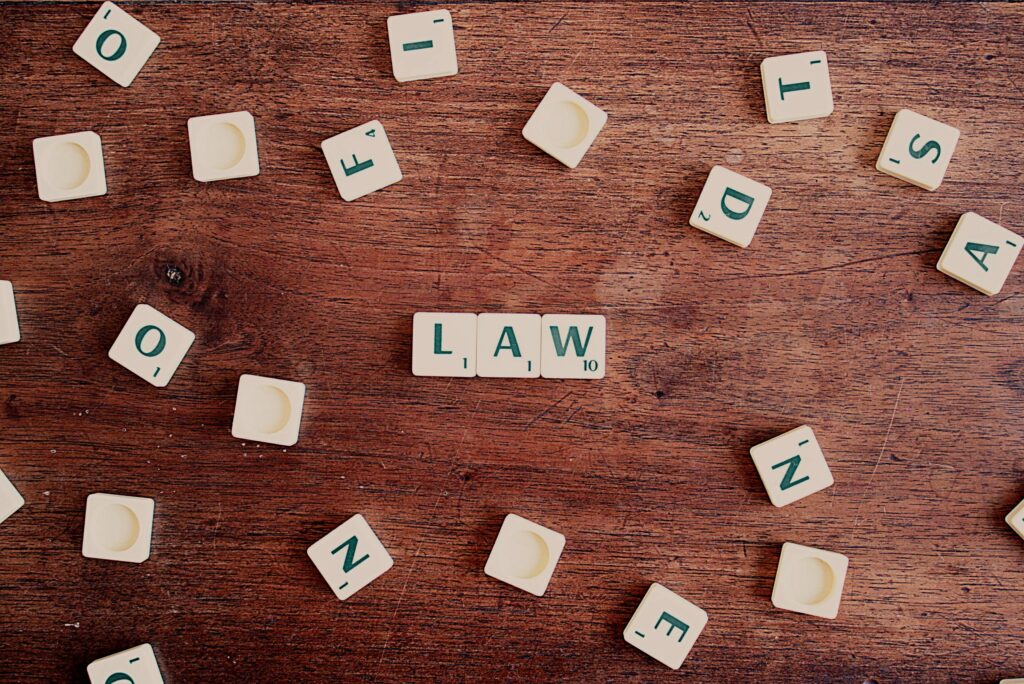In the following section, you can read our interview with Ivana Vasiljevic, a graduate lawyer employed in local government, who has extensive experience in the field of property law. She has clarified the meaning of property relations when purchasing real estate, how to resolve access issues to a property, and whether hiring a lawyer is advisable when buying real estate. We highly recommend reading her answers to all our questions below.
In the realm of our consultancy services, we frequently encounter legal uncertainties and thus regularly engage colleagues from the legal profession who are indispensable collaborators.

To ensure the following text is as comprehensible as possible for our readers who may not be familiar with legal terminology, we will define some basic terms below:
– Property Register This is the fundamental document detailing properties and the rights associated with them.
The Property Register includes information about:
1) Land Parcel (A Register): Details of the land or parcel.
2) Holder of Rights to the Land Parcel (B Register): Information about the rights holder for the land or parcel.
3) Structures and Specific Parts of Structures and Their Rights Holders (V Register): Information about buildings and specific parts of buildings and the rights holders for them.
4) Infrastructure and Their Rights Holders (V Register - Part 1): Details about infrastructure such as utilities and their rights holders.
5) Encumbrances and Restrictions (G Register): Information about any burdens or limitations on the property.
The Property Register encompasses all cadastral parcels belonging to the same rights holder and the structures on those parcels within the same cadastral municipality.
– Special Part: These are parts of a residential building, such as flats, commercial spaces, designated basements, designated attics, individual garages, or parking spaces.
Special parts also include auxiliary areas like open balconies, terraces, and similar sections.
- Flat: A set of rooms intended for living, forming a functional and structural unit, typically with a separate entrance.
- Commercial Space: One or more rooms designated for business activities, usually forming a structural unit with a separate entrance.
– Cadastral Parcel: A portion of land within a cadastral municipality defined by boundaries and identified by a number, with one or more rights holders.
The position, shape, and number of the cadastral parcel are shown on the cadastral map, while other details related to the parcel are recorded in the real estate cadastre.
– Urban Parcel: A distinct area composed of a single polygon, whose surface area and shape conform to the parceling rules specified in planning documents.
This parcel encompasses one or more cadastral parcels or parts thereof and meets the construction conditions set out in the planning document. An urban parcel must have vehicular access from a city road or public way. Exceptionally, in old city centers where vehicular access is not feasible, the urban parcel may only have pedestrian access from a city road or public way.
In a very pleasant discussion about professional topics and dilemmas, we bring you the answers to crucial questions regarding real estate, thanks to our interviewee, Ivana Vasiljevic.

TEAM:Which law is consulted for issues related to property rights?
Ivana V.:Ownership rights over movable and immovable property are regulated by the Law on Property Relations (Official Gazette of Montenegro, No. 019/09). If it concerns state or municipal property, In such cases, the right of disposal may be exercised by the government or local government authority. Under the Law on State Property, No. 021/09, 040/11) are applied.
TEAM:What do property relations mean when buying real estate, and how can the legal status of the property be checked?
Ivana V.:The most crucial aspect when buying real estate is determining ownership rights, primarily verified through the Property Register, which is the fundamental document detailing properties and the rights associated with them. Additionally, the Property Register can reveal if a property is encumbered. An encumbrance can relate to disputes over property rights, the existence and legality of a constructed object, or potential liens (mortgages) on the property in question. If encumbrances and annotations are recorded, it is necessary to further investigate their basis and the possibility of their removal.
TEAM:If there is no legal access to the property, can it be legally regulated, and how?
Ivana V.:Ideally, access to properties (cadastral parcels and buildings) is defined by planning documents and recorded in the real estate cadastre (public, unclassified roads, etc.). If this is not the case, access can be provided by establishing an easement through an agreement or judicial process. However, this is a temporary solution, and it is preferable to resolve access issues permanently through local government authorities.
TEAM:What types of property rights exist?
Ivana V.: In practice, the Property Register may list rights of ownership, disposal, management, or usage over a property.
TEAM:If the basis of the right to land is usage, can it be changed to ownership, and if so, how?
Ivana V.:The right of usage on land can be changed to ownership by submitting a request for the change of the right of usage to ownership to the competent unit of the Cadastre Administration under the conditions specified by the Law on Property Relations (Articles 419 and 420).
TEAM:What exactly does the disposal of property mean?
Ivana V.: I assume the question refers to cases where the state is the holder of ownership rights. In such cases, the right of disposal may be exercised by the government or local government authority. Under the Law on State Property,disposal involves transferring all or some ownership rights to third parties: alienation (sale, exchange, gift), management, usage, leasing, easements, pledging movable and immovable property (pledge, mortgage, fiducia, concessions, etc.). The competent authorities for the disposal of state property are specified by the aforementioned law.
TEAM: Finally, do you recommend hiring a lawyer when purchasing a real estate?
Ivana V.: Purchasing real estate is undoubtedly a serious process, which can sometimes be very straightforward and, at other times, quite complex. Therefore, hiring a lawyer is advisable, especially in cases involving uninformed parties.

Zahvaljujemo se našoj sagovornici Ivani Vasiljević i cijenimo što je izdvojila svoje vrijeme i podijelila sa nama svoje znanje i iskustva. Odgovori su bili veoma informativni i jasni. Nadamo se da će naš razgovor čitaocima biti od koristi, a ukoliko su ostala još neka pitanja na koja želite odgovor- pišite nam na te**@**********ac.me.





